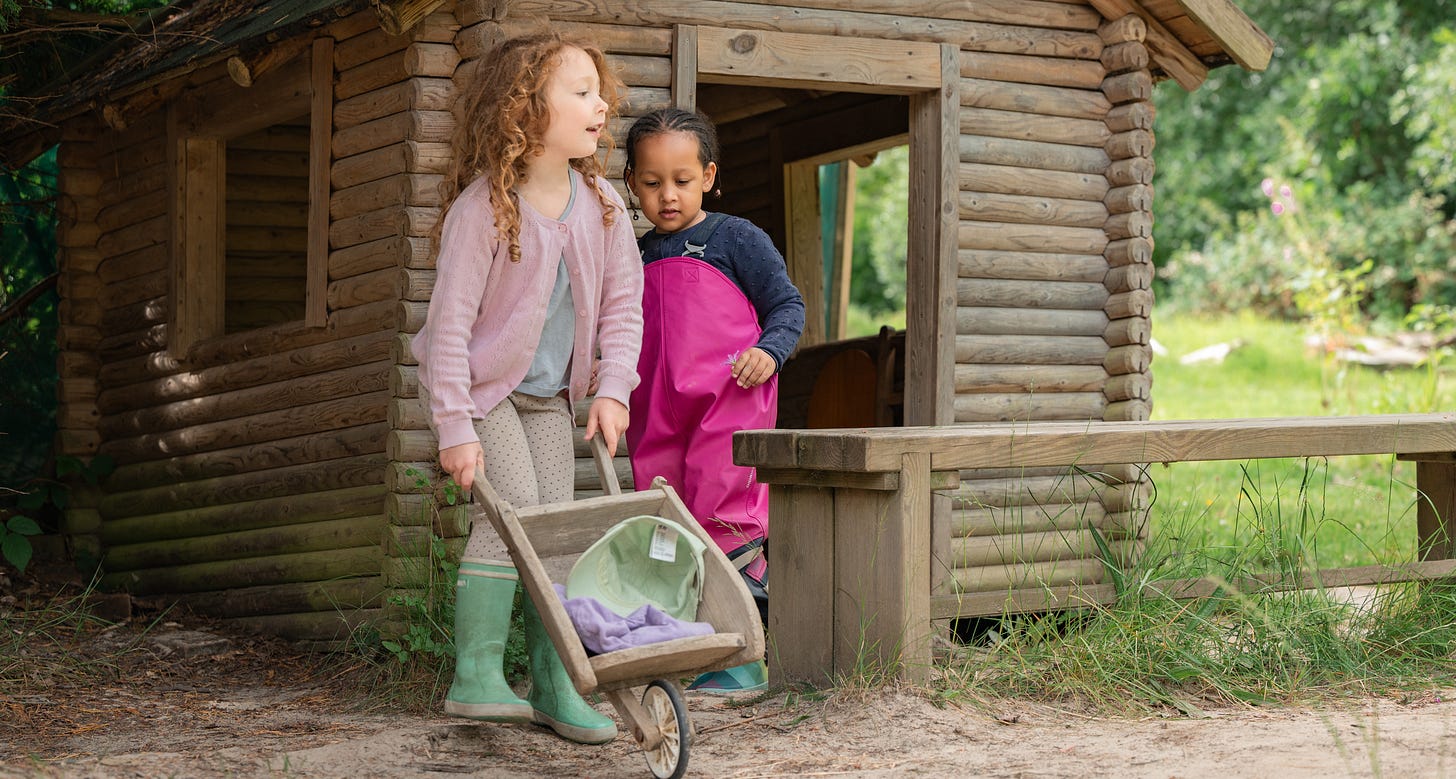Developing Empathy Through Creative Play
Rachel Ford Blanchard looks at how social and emotional skills can be fostered in early childhood
When I first started my Waldorf early childhood training, we were asked to explore a fundamental question: what is the connection between creative free play and empathy? As educators and parents, we intuitively want children to be kind, compassionate, and understanding of others. But how does this capacity develop? Research has shown that directly teaching young children about empathy in a logical way doesn’t work because their cognitive abilities, specifically in the frontal cortex, are still developing. If you’ve ever asked a young child to apologise and watched them repeat the words robotically, you’ve seen this in action. Of course, learning to apologise is important as a prosocial behaviour, but expecting a child to truly grasp and feel another’s emotions before the age of 7 (a developmental milestone sometimes called ‘the age of reason’) is a process that requires patience, adult modelling, experience, and nurturing environments.
Waldorf early childhood educators propose that when children are given the freedom to immerse themselves in imaginative play with their peers, with only minimal adult intervention, they gradually develop the ability to imagine multiple perspectives. This imaginative flexibility lays the foundations for children to understand the feelings and experiences of others.
Play is more than having fun. In kindergarten, we often hear how children process their lives, both at home and in the setting, through their play. It is one of the reasons play is so valued in most early years educational models. When children act out what they experience, they are able to make sense of the world around them. This applies to events and emotions. From the early stages of parallel play to more intricate cooperative play, the social and emotional skills children develop through play shape how they interact with others for the rest of their lives.



